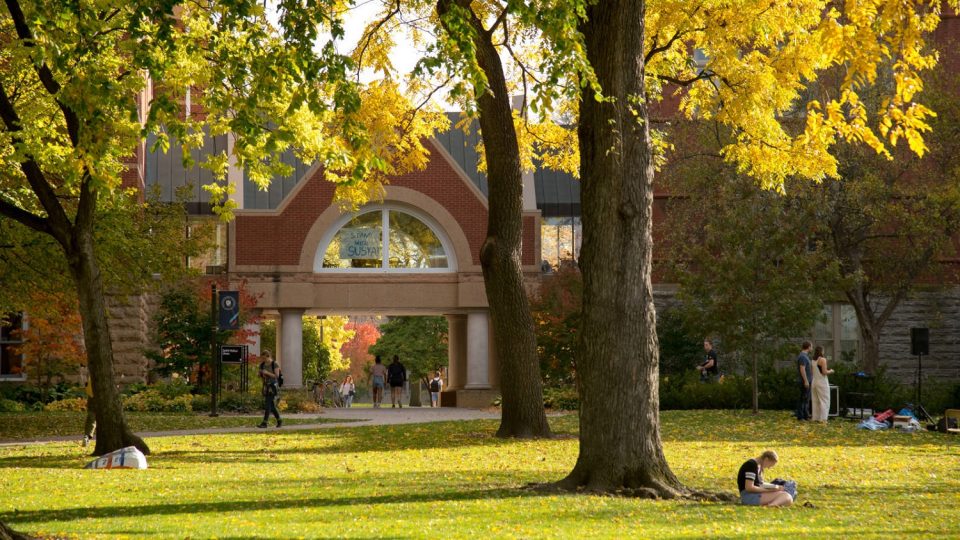
Test Your Mac IQ
We are glad you are getting to know Macalester! From obscure facts to well-documented history, there is always something to learn.
Trivia Answers
Ready to see how you did? If you haven’t already taken the quiz, find it here. Answers are below.
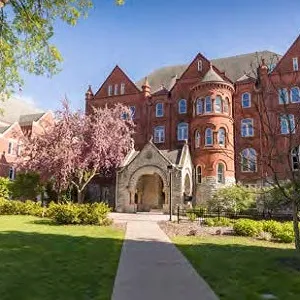
1. What’s the name of Macalester’s oldest building?
A. Weyerhaeuser Hall
B. Red Stone Hall
C. Old Main
D. Leonard Center
Built in 1887, Old Main is the oldest building on campus. It once housed virtually the entire college: classes, labs, offices, chapel, living areas—even the gym and dining hall. Today Old Main is a Humanities haven, and also includes a fourth floor lounge with the best views of campus. The link between Old Main and the library is an all-night study lounge.
Author Tim O’Brien ’68 (The Things They Carried) studied English here, former U.S. Vice President Hubert Humphrey taught political science here, and rumor has it that Reader’s Digest founder DeWitt Wallace—from the Class of 1911—once coaxed a cow up to the building’s top floor as a practical joke.
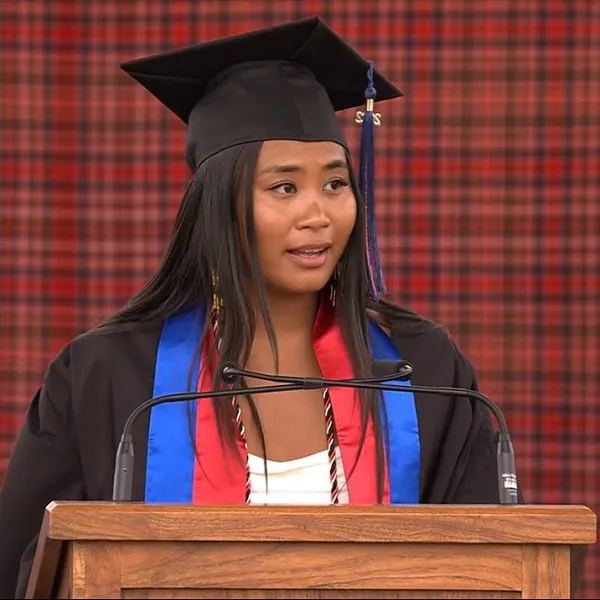
2. What Macalester tradition occurs at our graduation ceremonies each year?
A. Reading the peace prayer in multiple languages
B. Shouting “Until we meet again, Macalester” into the western sky
C. Building a paper chain with wishes for the future
D. Having President Rivera sing the college song “Dear Old Macalester”
The Peace Prayer is read at commencement and other notable events at Macalester in this this cherished tradition going back several decades. It is typically recited in at least three non-English languages, and then in English.
As we depart along our separate roads
May we be nourished by our years of friendship and learning
And may we draw upon them to create a more just and peaceful world
A world filled with fellowship and kinship
With respect and kindness for one another
And with the hope of a better tomorrow.
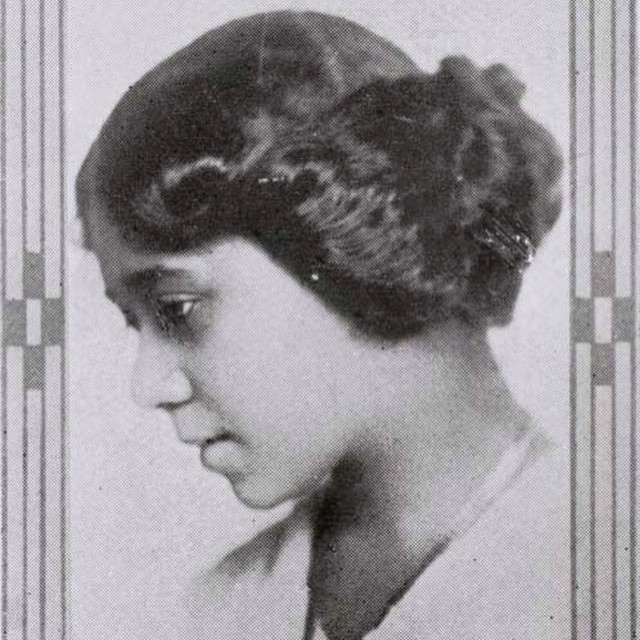
3. Macalester’s first Black graduate Catharine Lealtad, Class of 1915, earned a double major in what?
A. Geography and music
B. International studies and psychology
C. French and mathematics
D. Chemistry and history
Dr. Catharine Lealtad earned a double major degree in chemistry and history in 1915 with highest honors. She was Macalester’s first Black graduate, and in 1979 became the first person to receive two honorary degrees from Macalester. This excerpt from then college president John B. Davis, notes just some of her accomplishments and service to others.
You practiced pediatrics in Chicago and in the infant clinics of New York City. Commissioned a major in World War II, you supervised clinics for children in Germany’s displaced person camps in 1945. In 1946, you flew behind Communist lines in China to help fight a cholera epidemic. Then you joined New York’s Sydenham Hospital, the first experiment in a voluntary interracial hospital, practiced in Puerto Rico and for seven years in a free clinic in Mexico City.
Dr. Lealtad passed away in 1989. The Lealtad-Suzuki Center is named in her honor. See the full letter and learn more about Dr. Catharine Lealtad here.

4. If you were headed toward the Minnesota State Capitol for a class presentation, how far would you have to travel?
A. 17 miles
B. 4 miles
C. 3 blocks
D. 45 miles
Macalester sits in Minnesota’s capital city of St. Paul, and so students are just minutes away from the heart of the capitol building and many other government entities.
Students in political science, public policy, and other classes may find themselves at the capitol for coursework, legislative sessions, or presentations.
When considering topics like social justice and climate change, Mac students leverage the nearby location to join in rallies and protests in support of causes most important to them.
And of course, internships within government are accessible throughout the year with the convenience and proximity to the Minnesota State Capitol.
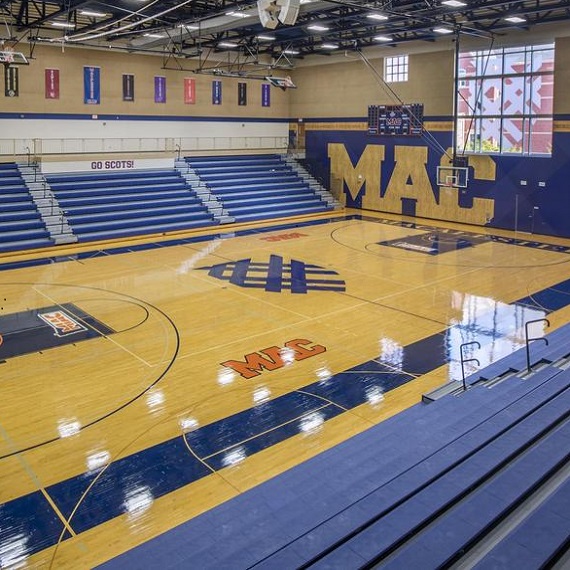
5. Macalester’s varsity athletic programs play in the MIAC. What does the abbreviation mean?
A. Minnesota Institute of Athletic Culture
B. Macalester Is A College
C. Minnesota Intercollegiate Athletic Conference
D. Minnesota International Academic Contest
Macalester has been a member of the Minnesota Intercollegiate Athletic Conference since it was founded in 1920. The Minnesota Intercollegiate Athletic Conference sponsors championships in 22 sports; 11 for men and 11 for women. Conference teams are all affiliated with the NCAA Division III and the MIAC is recognized as one of the most competitive NCAA Division III intercollegiate athletic conferences in the country.
Student athletes at Macalester appreciate the close proximity to MIAC competitors, allowing for greater balance with their academic and personal schedules.
The members of the MIAC, include private undergraduate colleges in Minnesota; Augsburg University, Bethel University, Carleton College, Concordia College-Moorhead, Gustavus Adolphus College, Hamline University, Macalester College, the College of Saint Benedict (women only), St. Catherine University (women only), Saint John’s University (men only), Saint Mary’s University, St. Olaf College, and The College of St. Scholastica.
Source: miacathletics.com
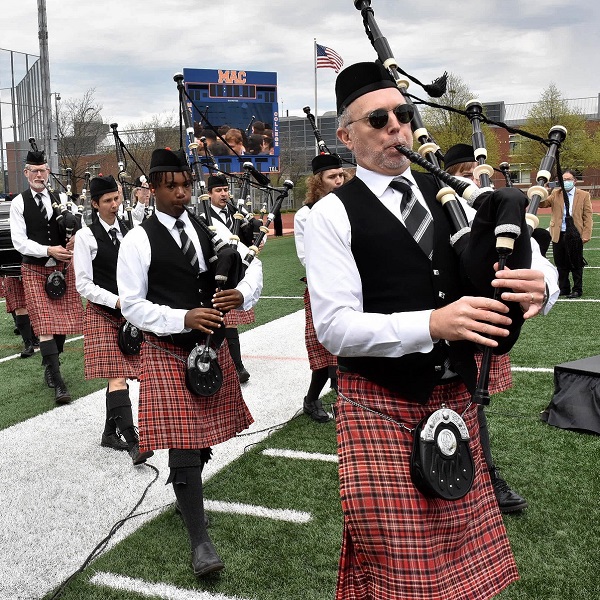
6. Macalester students can take advantage of free lessons for which instrument?
A. Oboe
B. Harpsichord
C. Kazoo
D. Bagpipes
Heard at major events throughout the year, the distinct sound of bagpipes becomes synonymous with some of the most significant milestones for Mac students. As such, every student is offered free lessons.
Lessons begin on a practice chanter, which is used to learn the fingerings. The practice chanter is pretty quiet and can be played in a dorm room or apartment without bothering the neighbors.
Students wishing to take piping to the next level can join the Macalester Pipe Band, which performs and competes at events around the region and the country.
Fun fact: When Macalester College president, Dr. Suzanne Rivera, started at Macalester, her partner set out to learn bagpipes. He can now be seen and heard piping at various events.
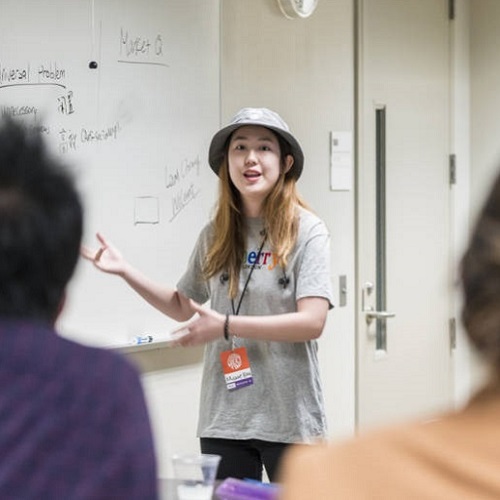
7. What is Mac’s 24-hour innovation and creativity contest called in which teams of 3-6 students invent a unique service or product that solves a real-world problem?
A. Macathon
B. Plaid-a-palooza
C. Makers at Mac
D. No Sleep Saturday
Macathon is an overnight innovation and creativity contest occuring in the late fall each year. In teams of 3-6 participants, students put their liberal arts education into action and invent a unique and original service or product (website, application, physical product) that solves a real-world problem. No preparation work is allowed; everything for the competition must be produced within the 24-hour period.
See more about how it works, the variety of ideas, and past winners here.

8. Which iconic punk band included Bob Mould, Macalester Class of 1982, as a founding member?
A. The Replacements
B. Bad Bad Hats
C. Hüsker Dü
D. Walt Mink
Bob Mould, Macalester class of 1982, is known for his work as guitarist, vocalist, and songwriter for alternative rock bands Hüsker Dü in the 1980s, Sugar in the 1990s, and his ongoing solo work.
Mould met Hüsker Dü co-founder Grant Hart at Cheapo Records, still located one block from campus. He notes his “professional” stage career launched at Ron’s Randolph Inn, long since closed, but at the time less than two miles from campus.
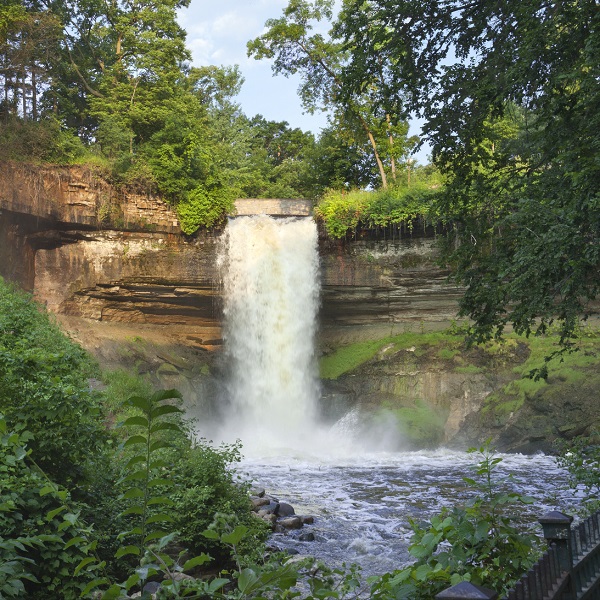
9. St. Paul and Minneapolis are consistently ranked in the top five American cities for what attribute/feature?
A. Walleye to human ratio
B. Park systems
C. Electric scooter availability
D. Global cuisine (especially on a stick)
Trust for Public Land measures data around access, equity, investment, amenities, and acreage in a ParkScore rating. St. Paul and Minneapolis consistently rank among the best in the country.
Mac students often mention community green space, recognizing the advantage of having mature trees, open lawns, and surrounding pathways for walking and biking. That appreciation for natural spaces can be further experienced in the many parks around the Twin Cities.
Notable parks include Minnehaha Park where Minnehaha Falls cascades in the warm months and creates a fantastic ice sculpture deep in winter. Hidden Falls runs along the Mississippi River and offers easy bike rides or long walks along tree-lined paths. Less than 4 miles from campus, Como Park has winding trails to enjoy around the park and Como Lake, with an optional stop at the Como Zoo & Conservatory.

10. What is the name of Macalester’s mascot?
A. Scot Dog
B. Mac the Scot
C. Scot the Saint
D. Loch Nessy
Macalester’s Scottish tradition comes from James Wallace. In 1930, Wallace, a prominent faculty member and former president, compiled a book on the history of his own ancestry, the Wallace and Bruce clans in Scotland. The effort to “establish a Scottish tradition,” The Mac Weekly wrote, occurred around James Wallace’s 89th birthday—the first Founder’s Day celebration.
With the success of the Scottish-themed Founder’s day celebration, Macalester became the Scots. Different mascots and names came and went, until Mac the Scot was “born” in 2002 to cheer on the entire Mac community.
Source: The Mac Weekly
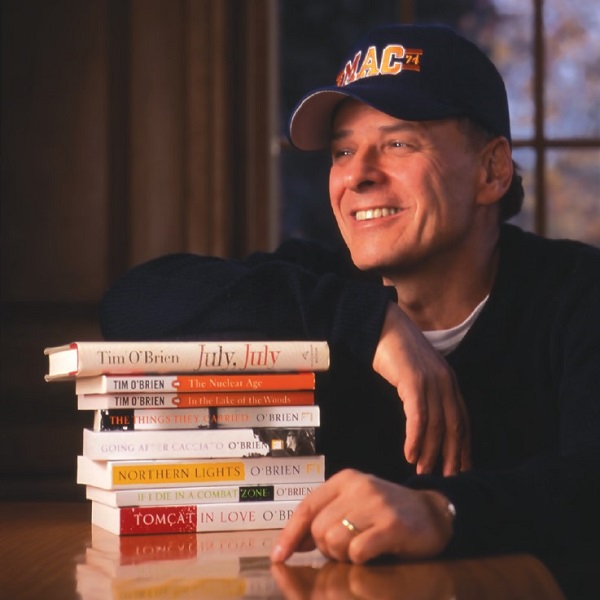
11. Which Macalester alum penned The Things They Carried, a novel that became a finalist for The Pulitzer Prize and the National Book Critics Circle Award?
A. Walter Mondale ‘50
B. Kofi Annan ‘61
C. Danai Gurira ‘01
D. Tim O’Brien ‘68
Tim O’Brien graduated from Macalester summa cum laude with a degree in Political Science in 1968. He also served as class president. The summer after he graduated he was drafted into the US Army and served in the Vietnam War in 1969 and 1970. In 1979 O’Brien won the National Book Award in Fiction for Going After Cacciato. His novel In the Lake of the Woods was the recipient of the 1995 Cooper Prize for Historical Fiction and The Things They Carried was among books considered by The New York Times in 2006 as the single best work of American fiction published in the last 25 years. Many of his literary works carry themes connected to the Vietnam War and you can find O’Brien featured in the documentary series Vietnam War: A Film by Ken Burns & Lynn Novick.

12. Macalester is home to one of a few urban wind turbines in the U.S. What have students named it?
A. Wind-ston Churchill
B. Notorious NRG
C. Derbin the Urban Wind Turbine
D. Princess Airial
Truthfully, we like any of these names. Urban legend tells us the answer is C, but neither written or video proof exists at the time of publication.
We do know Macalester installed a 10-kilowatt wind turbine on campus in 2003, one of the few urban wind turbines in the United States. Despite its small size, it provides an important opportunity to study urban renewable energy applications. The turbine and tower were donated by Xcel energy; the installation was a gift from the Class of 2003.